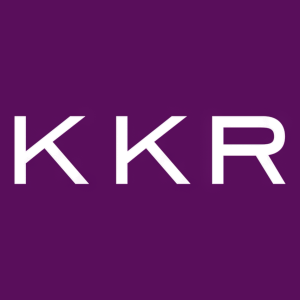KKR Releases “Regime Change: The Role of Private Equity in the ‘Traditional’ Portfolio”
KKR has released a new report titled Regime Change: The Role of Private Equity in the ‘Traditional’ Portfolio, authored by CIO Henry McVey and Racim Allouani. This report emphasizes the importance of incorporating Private Equity into diversified portfolios, showcasing its superior risk-adjusted returns compared to traditional 60/40 models. Key factors driving Private Equity performance include differing sector allocations, investment timings, and effective company selection. The analysis targets both institutional and individual investors, suggesting that Private Equity can be particularly beneficial for retirement-focused investors seeking higher compounding capital returns.
- Private Equity exposure enhances absolute and risk-adjusted returns.
- Report outlines critical drivers of Private Equity performance, aiding investor understanding.
- KKR's analysis suggests significant potential for returns in a low-return environment.
- None.
New Macro Report Highlights Importance of Harnessing the Illiquidity Premium in a Low Return Environment
“From our perch, Private Equity makes a lot of sense for buy and hold investors, especially retirement focused investors who want to compound capital at more efficient tax rates than many income oriented products provide. We also believe that, if our team is right in our assumptions about lower forward returns across capital markets, the value of the illiquidity premium, especially in Private Equity, will become more important,” said McVey and Allouani.
As part of their analysis, McVey and Allouani spend a significant amount of time outlining the critical drivers of Private Equity’s strong performance in recent decades, so that both institutional and individual investors can better understand its role when thinking through their asset allocation goals. According to McVey and Allouani, the following drivers of Private Equity performance warrant investor attention:
- Sector Allocation: Private Equity sector exposures are often meaningfully different from those of Public Equity indices and can often be a significant source of alpha. Broad sector compositions in different vintages of Private Equity funds also tend to be more dynamic than public markets indices, which can take much longer to adjust. This allows private markets investors to be more nimble in pursuing value creation opportunities at the right time.
- Timing Effect of Deployment and Exits: Timing of investments has been a key contributor to Private Equity’s absolute and relative performance over the past three decades. We believe that maintaining disciplined linear deployment can help create portfolios that are more balanced. That said, as we look forward, we believe that Private Equity Managers can be even more proactive in systematically exiting portfolio investments in fully priced markets.
-
Company Selection and Value-Creation: Much of the dispersion in performance among Private Equity Managers comes down to their ability to create value through operational improvement, strategic vision, employee engagement, and sturdy capital structures. The average difference between top and bottom quartile managers across vintages has been around
13% historically, compared to around5% for activePublic Equities managers.
Links to access this report in full as well as an archive of
- To read the latest Insights, click here.
- To read prior installments in our portfolio construction series, click here and here.
- For an archive of previous publications, click here.
About
About Racim Allouani
Racim Allouani joined KKR in 2015 and oversees
About KKR
KKR is a leading global investment firm that offers alternative asset management as well as capital markets and insurance solutions. KKR aims to generate attractive investment returns by following a patient and disciplined investment approach, employing world-class people, and supporting growth in its portfolio companies and communities. KKR sponsors investment funds that invest in private equity, credit and real assets and has strategic partners that manage hedge funds. KKR’s insurance subsidiaries offer retirement, life and reinsurance products under the management of
The views expressed in the report and summarized herein are the personal views of
View source version on businesswire.com: https://www.businesswire.com/news/home/20230301006099/en/
Media Contact:
Julia Kosygina
212-750-8300
media@kkr.com
Source: KKR
FAQ
What does KKR's new macro report focus on?
Who authored the KKR report on Private Equity?
What are the benefits of Private Equity according to KKR's report?
How does Private Equity compare to traditional investment models?






